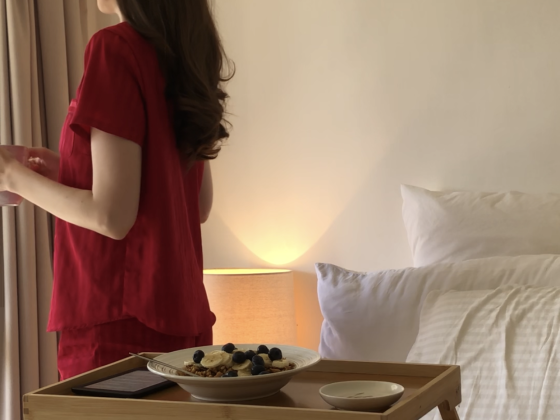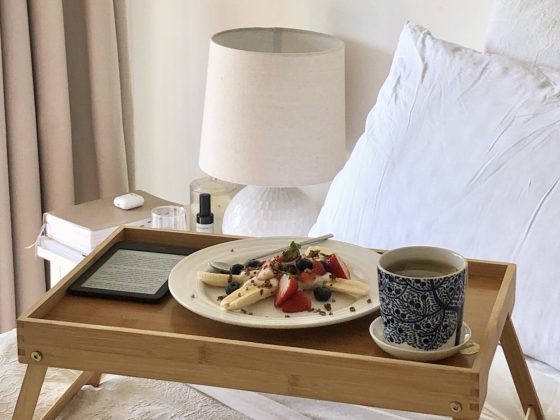A new year is a wonderful opportunity to start building habits that promote a healthier lifestyle. Small, consistent changes throughout the year can lead to significant improvements in your physical, mental, and emotional well-being. Here are some simple, yet effective, healthy habits to build in 2025!
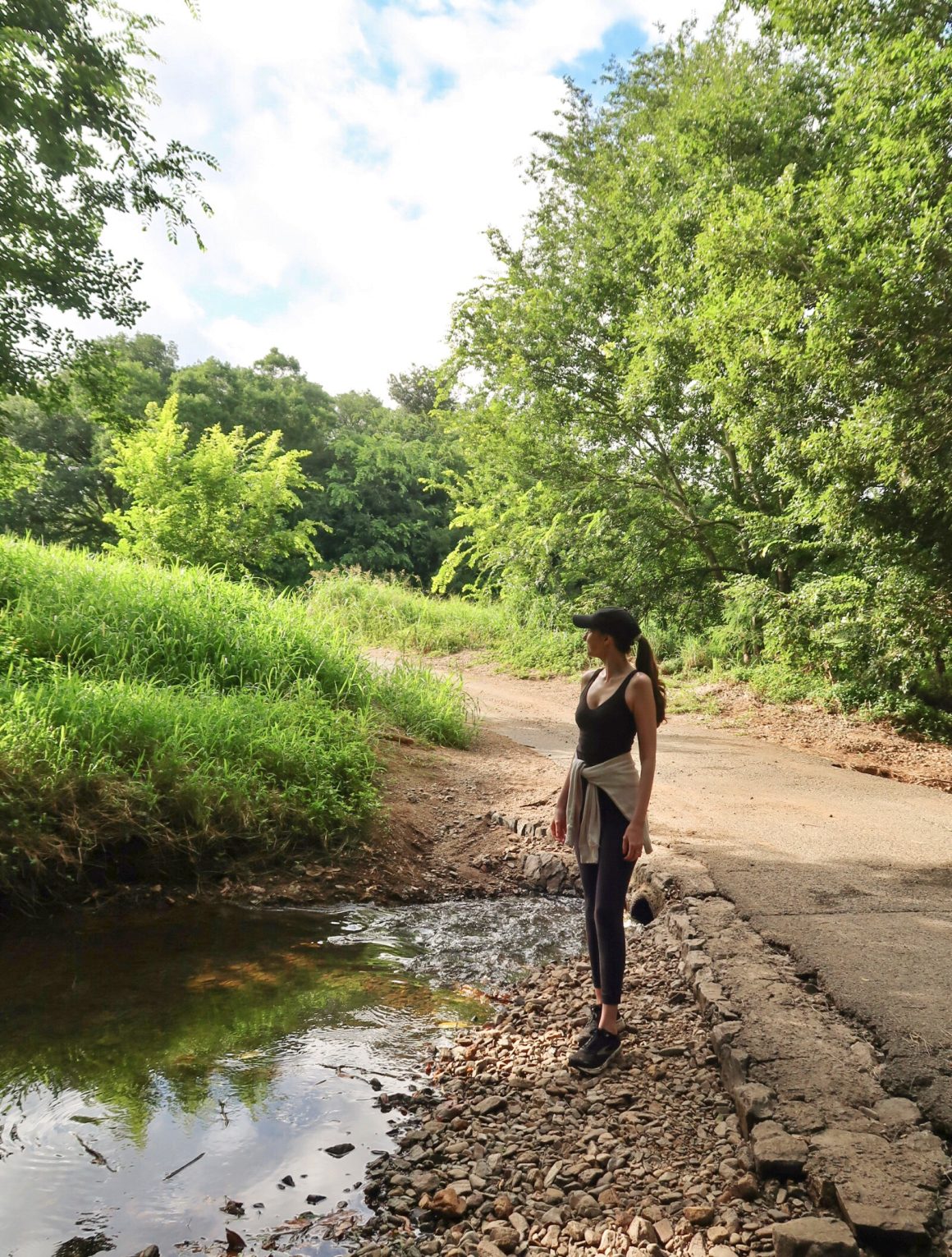
1. Prioritise Hydration
Staying hydrated is important for overall good health, and helps support your body’s natural detoxification process. Aim for 8 glasses of water, and adjust based on your activity level and climate. If you’re prone to forgetting to drink water, here are two tips that have worked well for me:
- Start your day with 1-2 glasses of water.
- Carry a reusable water bottle with you throughout the day.
2. Incorporate Movement into Your Day
Incorporate more movement throughout your day with intentional and incidental exercise. Commit to at least 30 minutes of physical activity most days of the week, by finding activities that you enjoy. It could be a 30 minute morning walk, a pilates class, a YouTube at-home workout, a dance class, or 30 minutes of cycling. Another great way to add more movement into your day is through incidental exercise, like taking the stairs, cleaning, walking to your local cafe, etc. I also recommend breaking up sedentary time by standing, stretching, or taking short walks.
3. Incorporate Nutritious Meals
Incorporate more meals into your diet that are based on whole, nutrient-dense foods like fruits, vegetables, whole grains, legumes, nuts, seeds and lean proteins. I recommend starting small, and building from there. That may look like incorporating three home cooked dinners each week, or choosing healthier takeout options, filling your pantry/fridge with healthier snack options or implementing meal prepping. Find what works best for you and your lifestyle. If you need guidance in this area consider working with a Dietitian (you can book a consult with me here).
You might also like to check out my post on how to build a balanced meal.

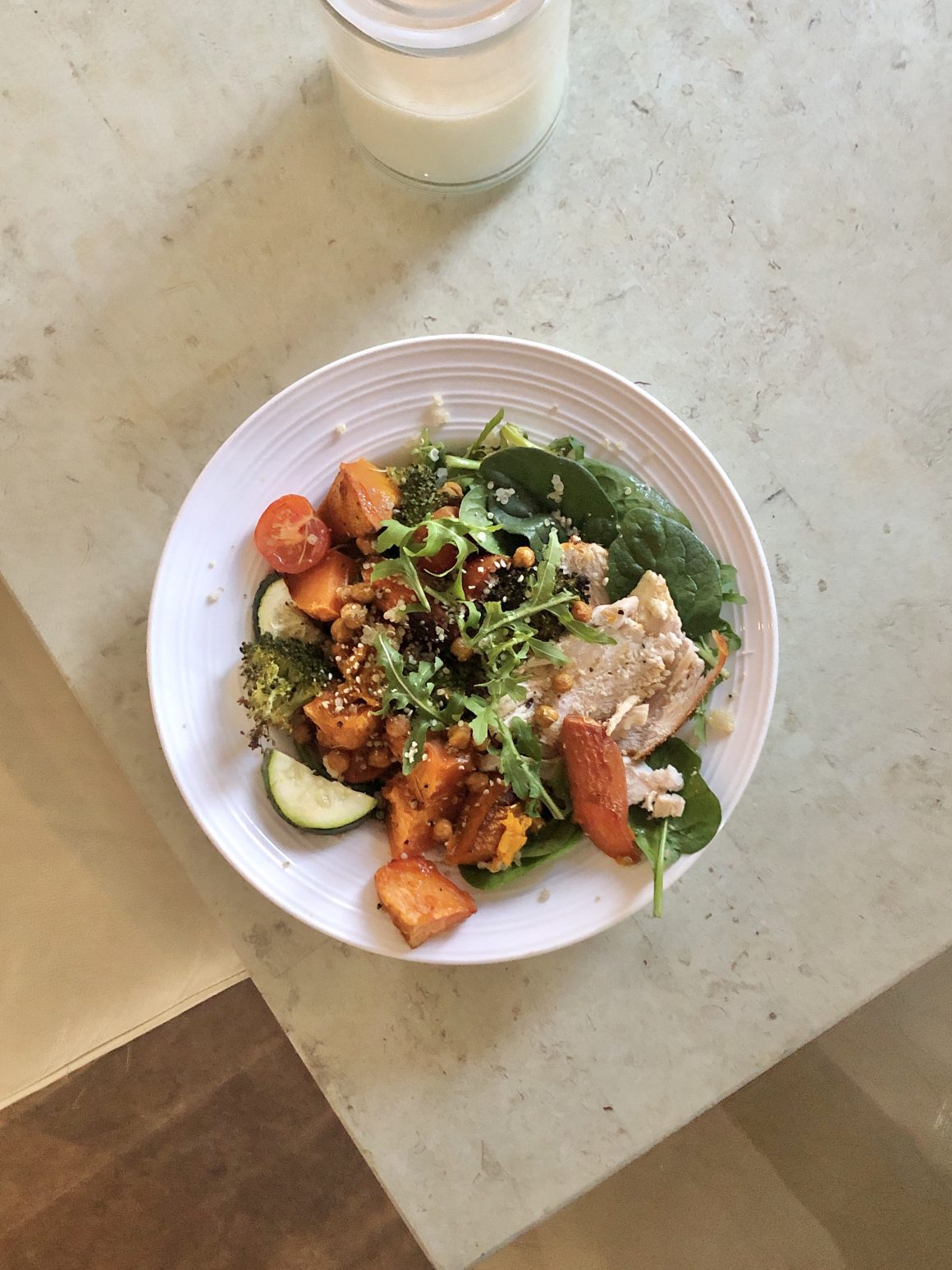
4. Establish a Consistent Sleep Schedule
Don’t underestimate the power of a good snooze. Good quality sleep can positively influence both your physical and mental health in a number of ways. This can include tissue repair and regeneration, stress management and reduced risk of chronic disease.
Most adults need about 7-9 hours of quality sleep each night, however it can vary depending on the person. Here are some tips to help you have a good night’s sleep:
- Create a relaxing bedtime routine. Think dim lighting, herbal tea (non-caffeinated), and a good book.
- Limit caffeine at least 8 hours before bed.
- Limit mentally taxing tasks two hours before bed.
- Limit screen time at least an hour before bed.
5. Practice Gratitude Daily
A simple habit that can change your life. Living from a place of thankfulness can change how we think about ourselves, our lives and others. Even during the not-so-great moments in life, gratitude can be a sweet reminder that all is not lost.
Here are some tips to help you to get into the habit of gratitude:
- Start or end your day by listing three things you’re grateful for.
- Keep a gratitude journal to reflect on positive moments.
- Share your appreciation with the people in your life.
(Check out my printable wellness planners if you’re looking for a gratitude journal)
6. Limit Screen Time
This is one of my personal healthy habits to implement this new year. High screen times are associated with increased stress and anxiety, as well as desensitising the brain’s reward system and causing changes in brain chemistry and hormones (1). No, thankyou.
This year I plan to set boundaries for social media and I encourage you to try the same. A boundary can include set times throughout the day (e.g. can only access social media between 9am-6pm), a screen time limit (e.g. 1 hour per day), or a rule such as ‘no screen time for one hour after waking up’. Here are some tips to help you along:
- Use apps or timers to monitor and reduce screen time. You can also schedule your phone to go ‘grayscale’ at a certain time which can help deter you from wanting to go on social media.
- Remove notifications from social media apps.
- Leave your phone in a draw or in another room during the ‘no screen’ times.
- Replace screen time with something else. For example, going on a walk first thing in the morning rather than scrolling on your phone. Or adding in a hobby to your evenings rather than scrolling on your phone.
7. Create a Morning Routine
We all have different schedules and demands, but if it’s possible, a simple morning routine can set your day up with health-focused action. Here are some steps to include into your morning routine that can help you implement three of the habits we’ve already discussed:
Hydration
Drinking 1-2 glasses of water when your first wake up. It’s also a great way to get digestion moving along, if you know what I mean.
Movement
A small morning walk, a gym session, or an at-home workout can energise you for the day ahead. Even just some incidental exercise can make a difference, like a five minute tidy up around the house, taking the stairs, walking to the bus, etc.
A nutritious breakfast
A nutritious breakfast doesn’t have to be time-consuming, you could go for a high-fibre cereal like weetbix; yoghurt with fruit and muesli, or some eggs on wholegrain toast. To free up time, you can also consider some meal prep options, like overnight oats, zucchini slice, egg cups (these ones look yum) or chia seed pudding with yoghurt.
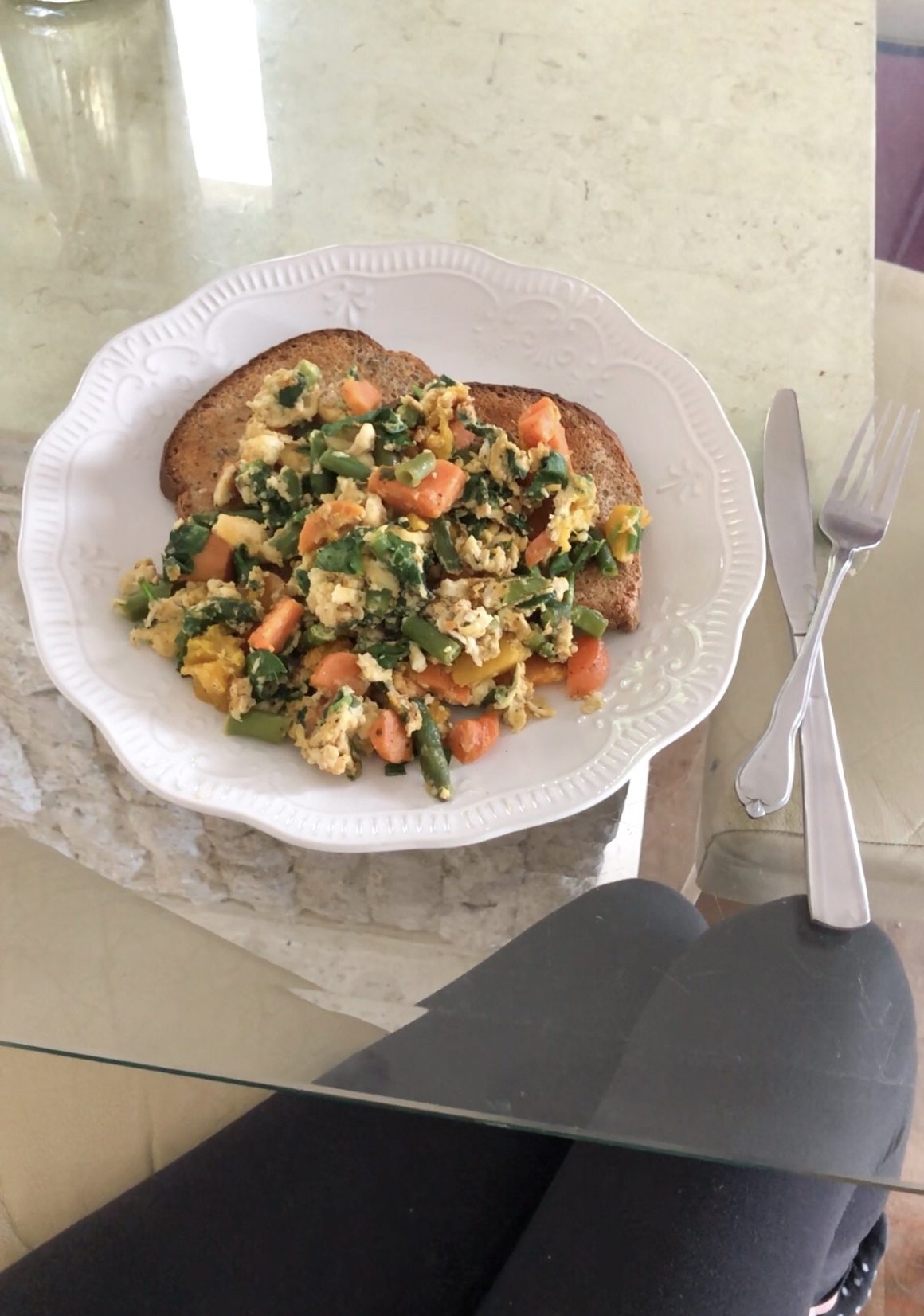

8. Focus on Mental Health
I’m a big believer in having a well-rounded approach to wellness, which includes your mental, emotional and social health. The previous few years have been difficult for a lot of people (myself included), and you may be feeling like you need to pay special attention to your mental health in 2025. Here are some ways you can do this:
- Seek professional support if needed, and don’t hesitate to talk openly about mental health.
- Schedule time for activities that bring you joy and reduce stress.
- Incorporate mindfulness practices like deep breathing into your daily routine.
- Try journalling regularly to help you gather your thoughts.
- Build healthy and strong relationships in your life.
- Prioritise your faith or spiritual practices like prayer.
And of course, nutrition, exercise, sleep and screen time limits can all help support your mental health.
9. Stay Organised
Staying organised can reduce stress and overwhelm, as well as create a focused and peaceful home environment. Consider using planners, apps or to-do lists to manage your tasks; I highly recommend Notion! I also recommend developing systems and routines to make organisation easy. Here are some examples:
- A 15 minute tidy-up each night.
- A weekly planning session.
- Making your bed first thing in the morning.
- Some simple snack or meal prep.
- Making double portions of food to give you leftovers for the following day.
- A decluttering session at the start of every new season.
- A ‘Sunday reset’.
10. Build Stronger Relationships
There is significant evidence that social support and feeling connected can improve your physical and mental health, and increase longevity (2). Here are some ways to get into the habit of building strong relationships:
- Spend quality time with loved ones on a regular basis.
- Practice active listening.
- Show compassion through your actions, not just words.
- Surround yourself with positive influences that support your growth.
Reminder: One Step at a Time
Adopting healthy habits doesn’t have to be overwhelming. Build one habit at a time, be consistent and celebrate your progress along the way! The key is to focus on sustainability rather than perfection. If you’d like more help with this, check out my post on ‘how to achieve your new year health goals’.
Here’s to a healthier you this new year!
Talk soon,
Chanté x
(1) Nakshine, V. S., Thute, P., Khatib, M. N., & Sarkar, B. (2022). Increased Screen Time as a Cause of Declining Physical, Psychological Health, and Sleep Patterns: A Literary Review. Cureus, 14(10), e30051. https://doi.org/10.7759/cureus.30051
(2) Martino, J., Pegg, J., & Frates, E. P. (2015). The Connection Prescription: Using the Power of Social Interactions and the Deep Desire for Connectedness to Empower Health and Wellness. American journal of lifestyle medicine, 11(6), 466–475. https://doi.org/10.1177/1559827615608788


